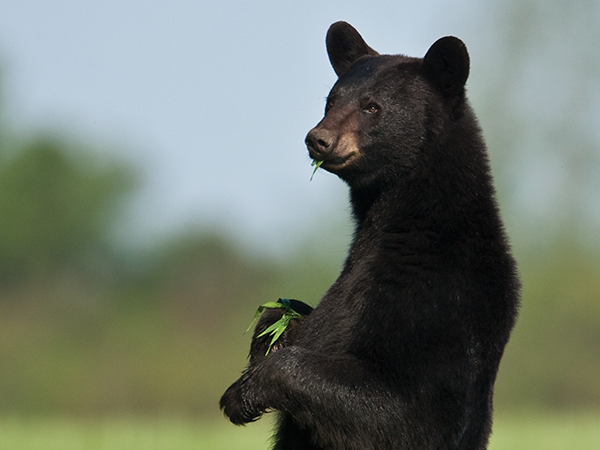Overview
The North Carolina Museum of Natural Sciences' mammalogy collection contains approximately 20,000 specimens and is one of the largest regional mammal collections in the Southeastern US. The specimens are primarily from North Carolina, but also include regional and international taxa. The collection contains significant historical and recent holdings of all North American orders. It encompasses the taxonomic units of 21 orders, 75 families, 246 genera, and 529 species. Specimen holdings are especially strong in the orders Rodentia, Soricimorpha, Artiodactyla, Chiroptera, Carnivora, Lagomorpha, Didelphimorphia, Cetacea and Sirenia.
Collection materials include study skins, tanned hides, skulls, complete skeletons, and fluid-preserved samples. A special collection arranged by element (type of bone) is maintained to facilitate identification of mammal remains from zooarcheological and food habit studies. The collection also contains articulated skeletons on exhibit including a manatee and six great whales (Blue, (2) Right, Humpback, Sperm and True's Beaked Whales). The holdings of marine mammals include 231 individuals in 35 species representing 13 families and 3 orders. A growing tissue collection — heart, liver, kidney, leg muscle and some other tissue types — are stored in 95% ethanol and are available for DNA or other research studies. This collection of nearly 2,800 tissues is stored in a -80°C ultra-cold freezer for long-term preservation.
Care of the collection is the responsibility of the permanent staff of the Mammalogy Unit, consisting of Research Curator Michael Cove and Collection Manager Lisa Gatens. The permanent staff is often assisted by temporary staff, interns, volunteers and Junior Curators. The mammal staff works closely with many universities, agencies and other institutions to acquire specimens for the continued growth and utilization of the collection.
History
Early acquisitions were made by Herbert H. Brimley and Clement S. Brimley, the Museum's cofounders and first curators. Although some specimens date back to the late 19th century, the collection really began to grow in the 1960s beginning with the efforts of David Adams. David Lee, former Curator of Birds, and former Museum director John Funderburg are responsible for considerable growth during the 1970s. The collection has grown steadily since the 1960s. Mary K. Clark was added to the staff as the first full-time mammal employee in 1980. A full-time collection manager was added in the late 1990s.
Loans\Visitation
Please direct loan or visitation inquiries to Collections Manager of Mammals Lisa Gatens at lisa.gatens@sanmingzhi.net or 919.707.9946.
Our online collections site is currently unavailable. For information about our collections, please contact the collections manager directly.
Resources
- Friends of Bonobos
- Duke Lemur Center
- Hibernation devastation: white-nose syndrome and our bats
- Bat Conservation International
- Southeastern Bat Diversity Network
- Cetacean Society International
- Mammal Species of the World
- Manatee Information - Florida Marine Research Institute
- The American Society of Mammalogists
Staff
- Curator: Michael Cove
- Collections Manager: Lisa Gatens


